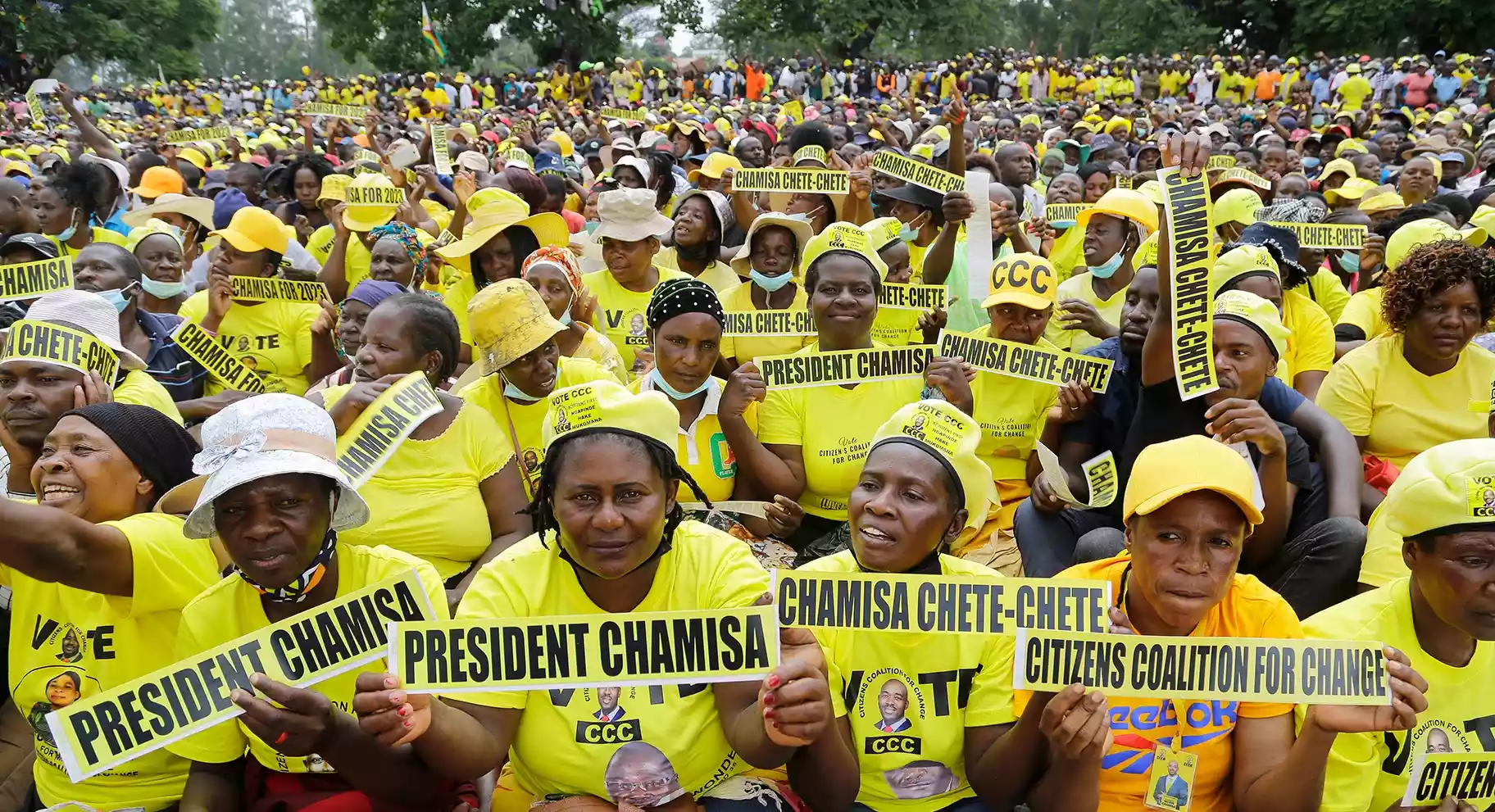
OPPOSITION Citizens Coalition for Change (CCC), has been plunged into chaos again following recent recalls that have culminated in by-elections this coming December. Most are wondering, with all the legal minds and intellectuals in the party, what went wrong.
In its response, the party blames it all on the ruling party as if it is owed a favour.
If something of that nature can happen to a political party that boasts majority support, claims to have lost elections due to vote rigging and electoral irregularities and yet it cannot put its house in order, it means there is something structurally wrong. Can it be blamed, or it is just part of a historical trend?
Perhaps, it may be vital to look back at the history of the country’s pursuit for change and why the process of change has historically been slower than usual. Could it be that there is something wrong with Zimbabwe as a nation?
At 43 years old, Zimbabwe is among the youngest sovereign States in the world. However, its struggle for independence and change has historically taken longer than most African countries. The First Chimurenga, also known as the First Matabele War (or Matebele Uprising), started as early as 1896.
However, the overall intention of the First Chimurenga was to push back the British South African Company colonial administration, amid fears it was mobilising more forces to consolidate its settlement in Southern Rhodesia. It took Zimbabwe a century to uproot colonialism, perhaps among the longest compared to most African countries.
The Second Chimurenga, also known as the Zimbabwean War of Liberation, started around 1964 following the formation of the Zimbabwe African People’s Union (Zapu), the Zimbabwe African National Union (Zanu) and several other parties which launched a civil war against colonial rule up until 1979 when the discussions for independence gained momentum.
By the time Zimbabwe gained independence, most African countries were well settled as sovereign States except for South Africa and Namibia. The period was marred by political gamesmanship, power struggles, assassinations and purging.
- Giles Mutsekwa was a tough campaigner
- Letter from America: Mountview Primary: A school with a big heart!
- Chamisa party defiant after ban
- Village Rhapsody: How Zimbabwe can improve governance
Keep Reading
Since independence, the country has seen several opposition political parties with different impacts, but none of them has made a major dent on the political power structure until today. Soon after independence, Zapu led by the late Joshua Nkomo became the main opposition party against the late Robert Mugabe’s Zanu before being co-opted in 1987 via a unity accord.
It was in 1990 that the late Edgar Tekere, a war veteran, broke away from the ruling party and decided to contest elections under his newly-formed party, the Zimbabwe Unity Movement, partly to stop the drive towards a one-party State.
As is always the case, genuine opposition politicians in Zimbabwe face violence, intimidation and arrests. Nkomo had suffered the same in the early 1980s before he appended his signature to the unity accord in December 1987 with the ruling party to save the people of Matabeleland after thousands lost their lives in the Gukurahundi attacks.
Having secured 16% of presidential votes and 20% of parliamentary ballots, Zapu supporters were targets of violent attacks and five of them reportedly lost their lives.
Similarly, one of the founders of the liberation movement, the late Ndabaningi Sithole, fled the country in the early 1980s reportedly fearing for his life, but returned to Zimbabwe in 1992 to prepare for his presidential candidature for the 1996 elections. He later withdrew from the elections claiming that the ruling party was undermining his campaign.
He was later convicted of trying to assassinate Mugabe in 1997. That marked the end of his political career and later his demise in the United States in 2000, having been granted bail on medical grounds.
In 1999, the country saw the rise of the labour-backed Movement for Democratic Change led by also late Morgan Tsvangirai, which may be one of the toughest opposition challenges ever faced by the ruling party.
Despite that the party posed a major threat to the ruling party’s stay in power, sometimes even leading in elections though not enough to attain a majority, the same template was applied to it. Violence, intimidation and arrests became the order of the day.
The party he originally formed would be hit by several spits that morphed into different political groupings of the same name with a few choosing different names. And again, they would regroup and rebrand themselves into what is the CCC today.
Despite the post-independence political arena being decorated by several political parties, some themes have remained constant: Violence, intimidation and arrests.
Could it be true that if this template has not been applied to an opposition leader, it is either the leader is part of the ruling party project, or the leader does not pose any threat to the status quo? Could it be that Job Sikhala poses a greater sting than the king of the yellow bees?
- Tapiwa Gomo is a development consultant based in Pretoria, South Africa. He writes here in his personal capacity.







